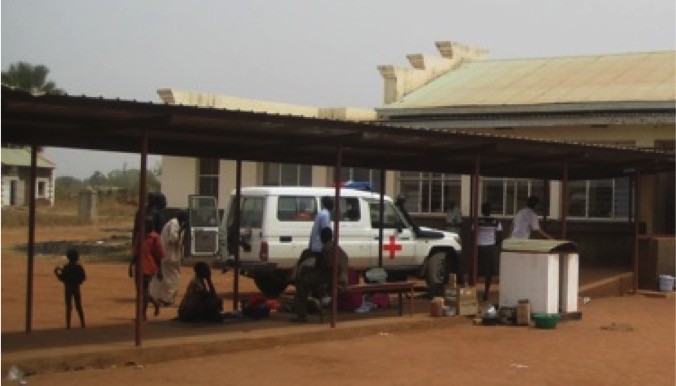A free ambulance service in Yirol, Lakes state has increased the number of mothers who give birth in the hospital, helping to lower rates of maternal mortality.
The ambulance has been in use since 2011 to bring patients to Yirol County Hospital. The ambulance is available 24 hours a day and seven days a week and serves Yirol West, Yirol East, and Awerial counties.
At a seminar in Juba on Wednesday, a group of doctors presented the results of a study on the effects of using the ambulance. They said that the number of women who gave birth in the hospital jumped by 47% in 2011 when the ambulance was introduced, and by more than 100% since.
Lavinia Groppi, a doctor with the Italian NGO Doctors With Africa CUAMM who helped write the study, said giving birth in the hospital instead of at home can save mothers’ lives.
“The most effective intervention to save mothers’ lives is skilled care at time of delivery. If you don’t act at the delivery moment we lose more mothers,” she said.
The study found three mothers, 0.6% of the total, died in Yirol County Hospital during delivery in the study period, a rate that is less than a third of South Sudan’s national maternal mortality rate of more than 2%, the highest rate on Earth according to the United Nations Development Programme.
The study found that 13% of the total estimated number of births in the greater Yirol area took place at the hospital, but 38% of all births with life threatening complications such as bleeding took place in the hospital.
Groppi said that although 38% is still less than half of mothers who need major hospital care during birth, it represents an improvement.
“38% we can say is a very low result, but if only 13% of patients reach hospital at all, nearly 40% in case of emergency reach the hospital is quite good,” the doctor said. “In this case ambulance has been very key.”
Richard Lako, the acting undersecretary of the National Ministry of Health, said that improving hospitals in South Sudan is not sufficient if citizens cannot access the health facilities.
“The intervention in the hospital is not enough, you need ambulance,” he said, urging the implementation of more ambulances. “One ambulance cannot cover the whole Greater Yirol.”
In the study period, the ambulance went on 2,345 total trips for various medical emergencies, including 1,683 maternal cases.
The vast majority of the cases came from Yirol West and Yirol town with small numbers from Yirol East and Awerial.
As part of the ambulance service, traditional birth attendants including midwives are encouraged to join mothers in the ambulance to the hospital where they receive an incentive for their help.
The Yirol County Hospital ambulance, courtesy CUAMM




